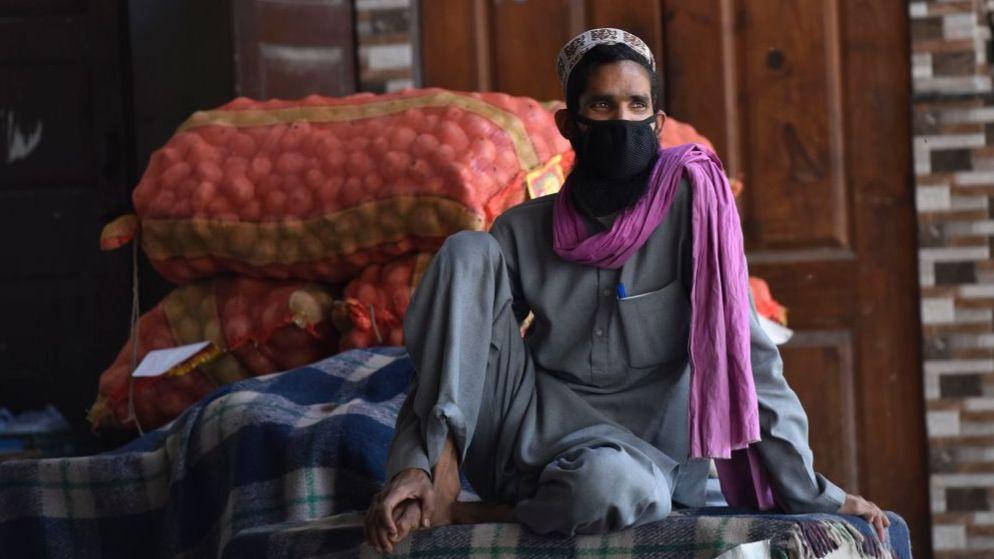Brits in India 'feel forgotten' as thousands still stranded
- Published
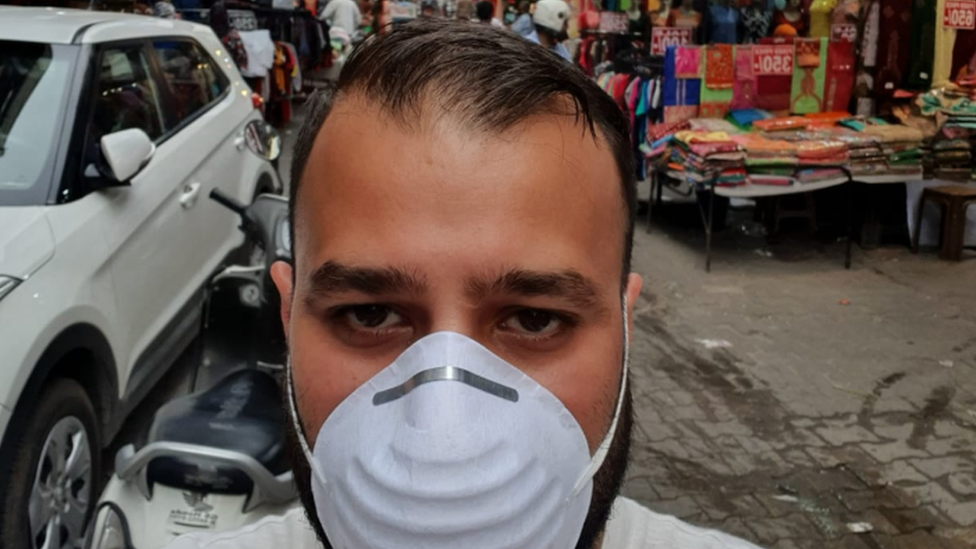
Amanpal Mann said many of the people still in India felt "forgotten"
Thousands of British citizens, many of them elderly, are still stuck in India a month after the country went into lockdown, the Foreign Office has admitted.
Some have been running out of medicine or have been scared to go outside amid reports of violence against foreigners.
Relatives and MPs have called for more urgency in getting people home, asking for more flights to be organised.
British authorities said they were working hard to get people back.
'It's disgraceful'
Pamela Sharma, 49, from London, left for the Punjab at the end of January with her parents.
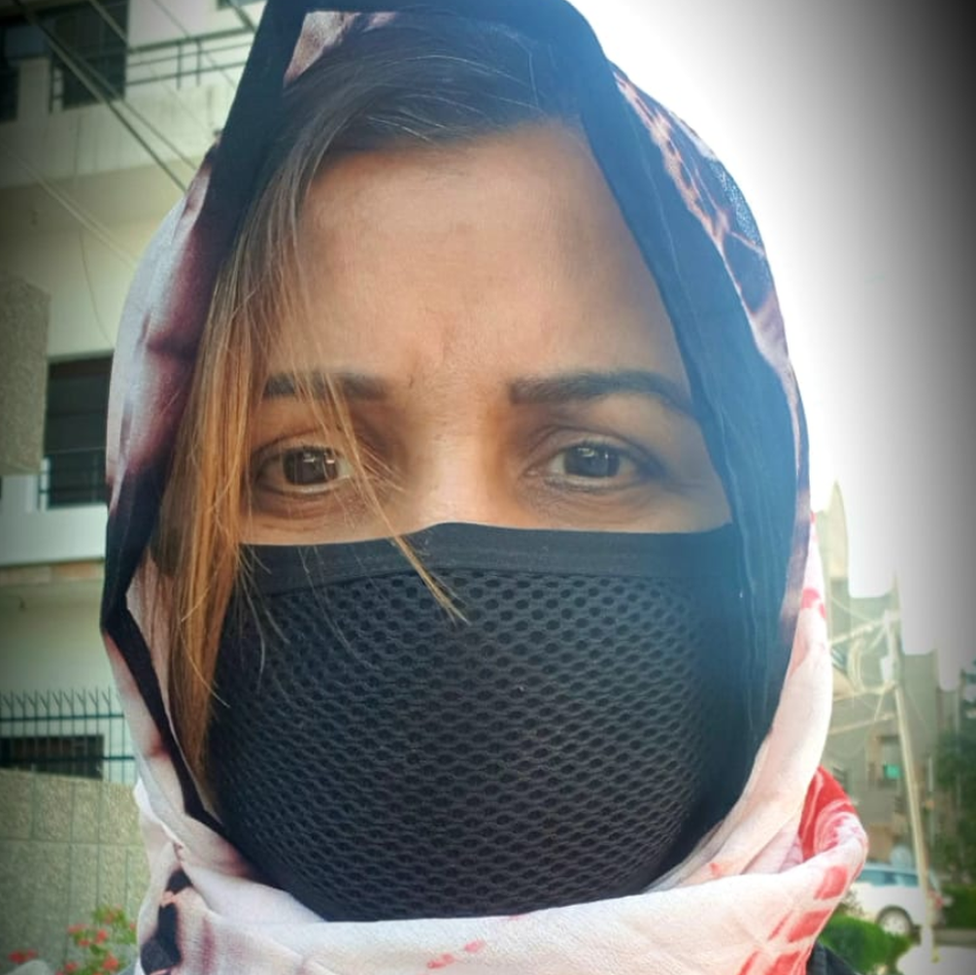
Miss Sharma said the situation was affecting her mental health and "giving her grey hairs" and sleepless nights from anxiety

They were due to come home on the same day flights out of the country were stopped. They have not been offered a place on a repatriation flight despite registering and paying.
Miss Sharma has colitis and needs to use a colostomy bag. Both her parents are in their 80s and have blood pressure issues.
She believes these conditions have been made worse by the increasingly hot weather and lack of air conditioning at the holiday home they have been living in.
"I know we're not in a hotel or running out of food but my life and home are back in the UK," she said.
"And if anything were to go wrong, I don't want my parents to have to go to a hospital here.
"We've all worked all our lives and paid taxes, I think the government just needs to pull its finger out and get us home."
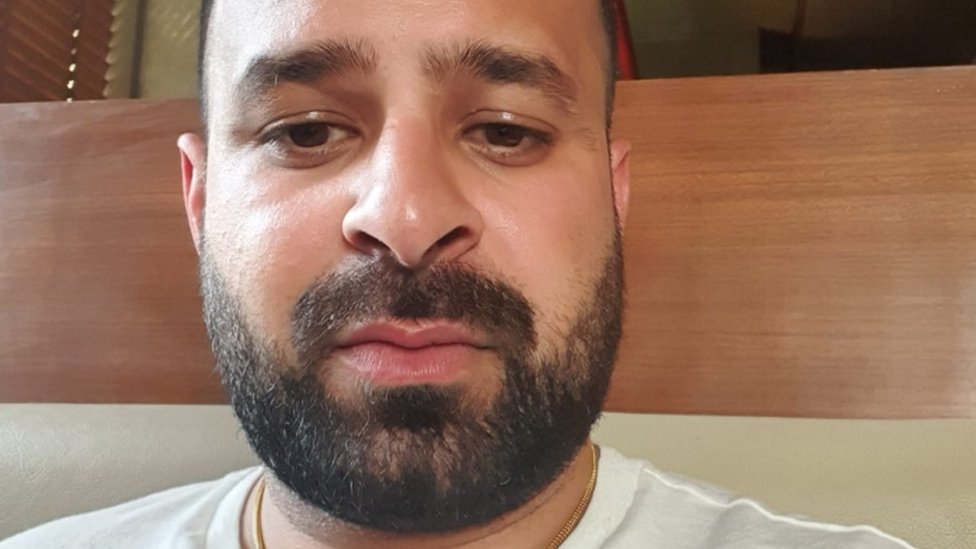
Amanpal Mann said this was a popular time of year for British Asians, particularly the elderly, to visit family and properties in India
Amanpal Mann, 31, from Long Eaton in Derbyshire, returned home last Wednesday after weeks of waiting to hear if he would be flying home.
He went to the Punjab in early March when official advice said it was still OK to travel. He ended up stuck with his mum, 59, and granddad, 89, who had only a few days' medication left for kidney disease.
"We felt forgotten," he said. "The other countries got their people out, we're the last ones left. I still know many people left behind and it's disgraceful."
One woman, who is still in India but wished to remain anonymous, told the BBC she had flown out with family in early March for a 10-day trip to take her mother's ashes to a Sikh holy place.
She said they had faced hostility from the local population and police, who she said believed they had brought in the virus, and had to find replacement medicines which were causing side effects.
"I do not feel safe here," she said. "The repatriation process started too late and is taking too long.
"Some of my family are vulnerable and others like myself have young children at home they need to get back to.
"We need more flights and we need them immediately - we feel abandoned."
Allow X content?
This article contains content provided by X. We ask for your permission before anything is loaded, as they may be using cookies and other technologies. You may want to read X’s cookie policy, external and privacy policy, external before accepting. To view this content choose ‘accept and continue’.

'Working round the clock'
The lockdown began in India on 24 March and the first British repatriation flight left Goa on 8 April.
Since then 10,000 people have been returned to the UK, according to The Foreign and Commonwealth Office (FCO).
But, at the beginning of the crisis, it estimated 20,000 were stranded there.
On Friday there were about 6,900 people on the waiting list for a flight just from the Punjab, although the FCO stressed this number was constantly changing.
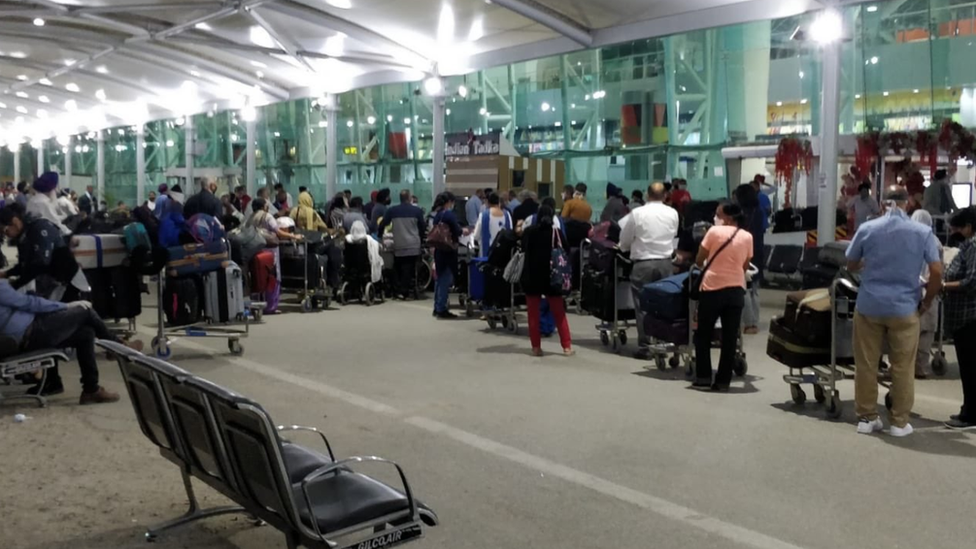
The FCO has promised there are more flights coming
Since then three flights have left the region and 10 more across India were scheduled to leave in the next week.
About 300 people can leave on each flight but they have to pay hundreds of pounds for their tickets.
Jan Thompson, acting high commissioner to India, tweeted to say it was the "world's largest lockdown" and clearance had to be sought for each person, from multiple authorities over large areas.
A spokeswoman for the FCO added: "This is a huge and complex operation, and our consular teams are working around the clock to help thousands of British travellers to get home from India."

A SIMPLE GUIDE: How do I protect myself?
AVOIDING CONTACT: The rules on self-isolation and exercise
LOOK-UP TOOL: Check cases in your area
MAPS AND CHARTS: Visual guide to the outbreak
VIDEO: The 20-second hand wash


Follow BBC East Midlands on Facebook, external, Twitter, external, or Instagram, external. Send your story ideas to eastmidsnews@bbc.co.uk, external.
- Published24 April 2020
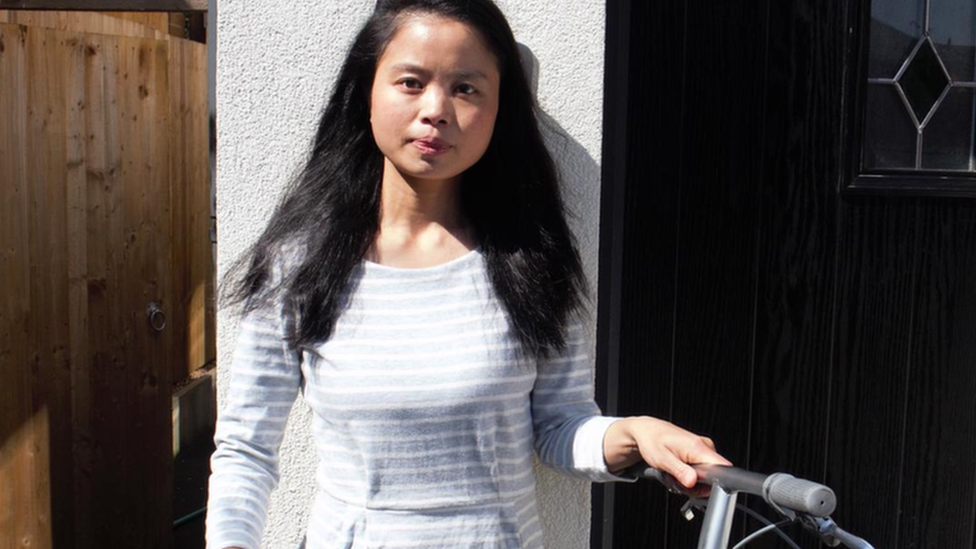
- Published16 April 2020
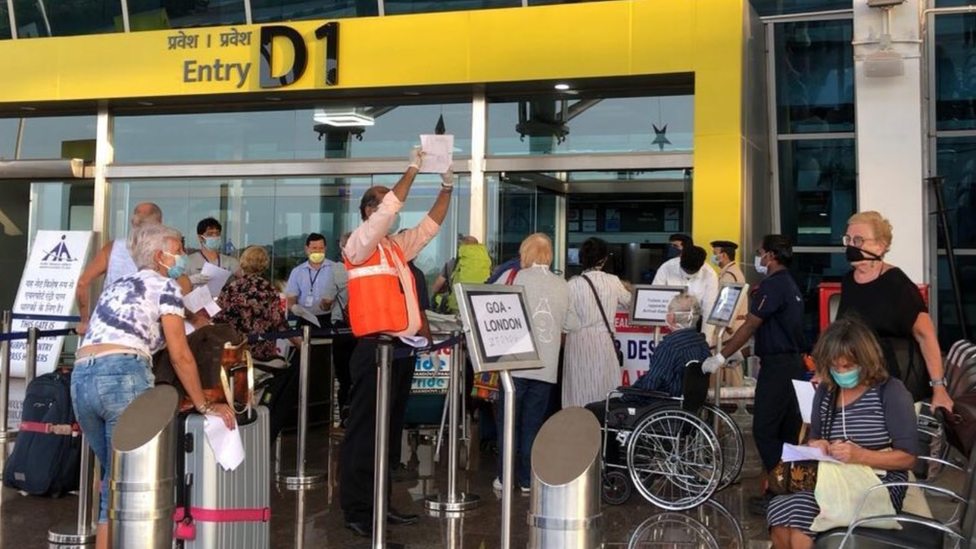
- Published14 April 2020
